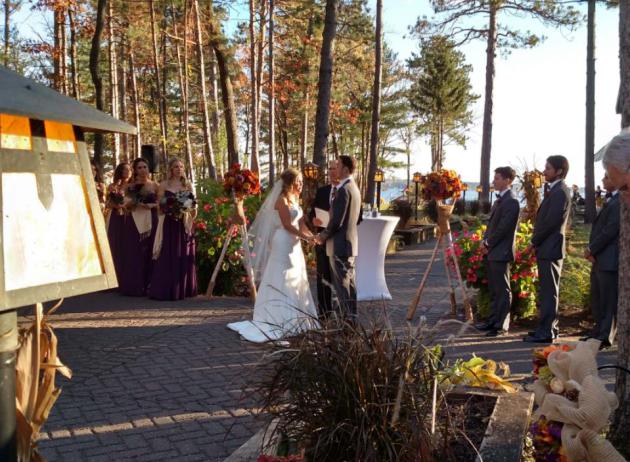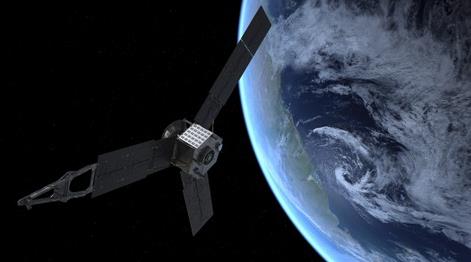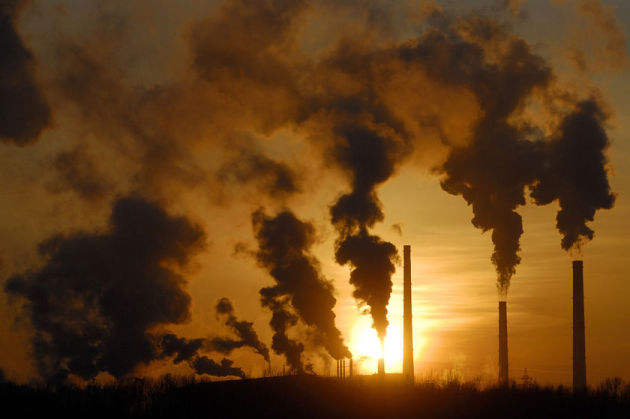76 F. high temperature in St. Cloud Thursday.
74 F. average high on September 8.
76 F. high on September 8, 2015.
September 9, 1979: 1 3/4 inch hail falls in Douglas County.
September 9, 1917: Very chilly air moves into Minnesota, with a low of 17 degrees at Roseau.
Getting Married? Consider a September WeddingThe
joys of being a public figure. Last October my oldest son, Walt, got
married up at Grandview Lodge on Gull Lake. The sun came out for the
ceremony - 50 degrees. I felt relieved, blessed. After the wedding a
woman approached me in the parking lot. "Paul, I couldn't help but
notice your son had a PERFECT day for his wedding. The day before my
daughter got married outside - and it POURED! How does that make you
feel?" I was at a rare loss for words.
"Lucky?" I sputtered. No, Mother Nature doesn't owe me any favors either.
June
brides, listen up. Do yourself a big favor and consider getting hitched
in September. On average it's drier, less humid, but temperatures are
still lukewarm, arguably the best month of the entire year for outdoor
plans.
The approach of a cooler front sets off a stray shower or T-shower today.
Saturday will be brisk with a stiff northwest wind and temperatures holding in the 60s.
Sunday should be a better lake day with warm sun and a shot at 80 degrees. A string of 50s & 60s arrive next week.
Yes,
this is my favorite month. Lakes are mostly-empty; still warm enough
for a dip as leaves ripen overhead. What's not to like?
Small Tornado Hits Camp Ripley. Tornadoes in September are rare, but hardly unprecedented. Here's an excerpt of a
Facebook post focused on the tornado that struck Camp Ripley Wednesday night: "...
There
were no injuries caused by the severe weather, though several buildings
used for housing, training and maintenance received major damage. There
was also major damage to the nearly completed 10-megawatt solar array
that was set to be dedicated next week. The dedication has been
postponed to a yet to be determined future date. "We were extremely
fortunate, all our people are safe," said Col. Scott St. Sauver, Camp
Ripley Garrison Commander. "We can repair buildings and replace damaged
equipment, but our people are irreplaceable..."
Nagging Thunder Risk Today.
The approach of a cooler front will destabilize our atmosphere again
today with the best chance of a passing shower or T-storm this morning,
according to 4km NAM model data from NOAA. 60-hour Future Radar
product: AerisWeather.
Cool Breeze Saturday - Cooler Breeze Next Week.
With a sun angle as high as it was back on April 1 it's no wonder that
it's cooling off a bit. Saturday will feel like September again with a
longer stretch of cool weather by the middle of next week. Ah September,
shorts and sweatshirts - together.
A Rough Winter? Don't Count On It.
The Farmer's Almanac is (apparently) basing a forecast of a frigid,
snowy winter on La Nina, which is problematic, since NOAA just announced
that the La Nina cooling phase in the Pacific has reversed itself with
ENSO-neutral conditions expected into the winter months. While it may
not be as mild as last winter, odds still favor a milder-than-average
winter for Minnesota and much of North America. NOAA Climate Forecast
Service outlook courtesy of WeatherBell.
 La Nina Watch Cancelled - Conditions Favor ENSO-Neutral Conditions This Winter.
La Nina Watch Cancelled - Conditions Favor ENSO-Neutral Conditions This Winter. Which may take the edge off some of the coldest, most harrowing winter weather predictions for the USA. Here's an excerpt from
NOAA CPC: "...
Atmospheric
anomalies over the tropical Pacific Ocean largely indicated
ENSO-Neutral conditions. The traditional Southern Oscillation index and
the equatorial Southern Oscillation Index were weakly positive during
August. The lower-level winds were near average, while the upper-level
winds were anomalously westerly in a small region to the east of the
International Date Line. Convection was suppressed over the western and
central tropical Pacific, although less suppressed compared to last
month. Overall, the combined ocean and atmosphere system contines to
reflect ENSO- Neutral..."
* Andrew Freedman has more on the implications of ENSO-neutral vs. La Nina at
Mashable.
Hottest Temperature Ever Measured in September for Europe. Christopher C. Burt reports at
WunderBlog: "
An
intense heat wave has occurred in recent days in the Iberian Peninsula
with a site in Spain, Sanlucar La Mayor, measuring 46.4°C (115.5°F) on
Monday, September 5th. This (if verified) would be the hottest
temperature ever observed anywhere in Europe during the month of
September. Portugal broke its September monthly heat record with 44.5°C
(112.1°F) at Alacer do Sal also on September 5th. A few days earlier
amazing heat also prevailed in the Middle East with Mitribah, Kuwait
reaching 51.2°C (124.2°F) on September 3rd. This would be the 2nd
hottest temperature ever reliably measured on Earth during the month of
September. Here are some more details..."
Map credit:
Climate Reanalyzer.
* Check out a very long list of record high temperatures across Europe at
coolwx.com.
 Hype, Bust or Effective? Messaging Hermine In A Post-Hurricane Sandy Era.
Hype, Bust or Effective? Messaging Hermine In A Post-Hurricane Sandy Era. Dr. Marshall Shepherd has an interesting post mortem on Hermine at
Fortune: "...
Did we learn anything from Sandy for Hermine? Gary Szatkowski told me in a message,
Overall,
I thought the Hermine messaging was good for a very difficult
situation, The track forecast was a technical challenge and the timing
of the storm affecting the holiday weekend was a social science
challenge. I think the track forecast was as good as the state of the
science allows.
In social and traditional
media there was the urge to compare the storm to Sandy. And in many ways
there were some similarities. However these storms were also very
different. Though certainly a threat Hermine was no Sandy..." (Image credit: Aeris Maps Platform).
Toxic Algae Blooms Are On The Rise. As usual, the reasons are complex, a convergence of amplifying factors, reports
Scientific American: "...
These
events are known as harmful algal blooms, because the pose a threat to
public health. Cyanotoxins are unstable and change rapidly, making
detection difficult. Some harm the nervous system. Others, known as
hepatotoxins, can severely damage the liver and kidney. HABs can occur
in marine or freshwater environments, closing fisheries, beaches and
even entire lakes. Evidence is mounting that HABs are increasing in both
frequency and intensity.
Drought conditions brought on by climate change can depress lake
levels, concentrating nutrient-rich agricultural runoff in areas of low
turbidity. Torrential rainfall can also trigger a sudden influx of
agricultural nutrients, as occurred in Florida’s Lake Okeechobee this
year, where a HAB flowed seaward, forcing beaches to close..."
Image credit: "Toxic algae bloom in Lake Erie, 2011
Credit: Jesse Allen and Robert Simmon, NASA Earth Observatory via WIkimedia Commons." Public domain.
 The Oceans Are Heating Up. That's a Big Problem on a Blue Planet
The Oceans Are Heating Up. That's a Big Problem on a Blue Planet. Here's an excerpt of an Op-Ed from Bill McKibbon at
The Guardian: "...
The
International Union for the Conservation of Nature has published an
extensive study concluding that the runaway heating of the oceans is “the greatest hidden challenge of our generation”.
When we think about global warming, we usually fixate on the air
temperature. Which is spiking sharply – July was the hottest month ever
measured on our planet. But as the new study points out, 90% of the
extra heat that our greenhouse gases trap is actually absorbed by the
oceans. That means that the upper few meters of the sea have been
steadily warming more than a tenth of a degree celsius per decade, a
figure that’s accelerating. When you think of the volume of water that
represents, and then try to imagine the energy necessary to raise its
temperature, you get an idea of the blowtorch that our civilization has
become..." (File image: NASA).
Before You Get Too Excited About the Farmer's Almanac Winter Outlook.
The forecast for last winter was "cold and snowy". No, it didn't quite
work out that way, just like overall accuracy is (meh) most winters. Fun
to read, just like a horoscope, but don't put too much stock in a
specific forecast for a specific period.
These Technologies May Actually Deliver Elon Musk's Dream of Changing the World. Bloomberg reports: "
As
Tesla founder Elon Musk promises to change the world, starting with a
giant battery factory in the Nevada desert, investors from Toronto to
Tokyo are quietly developing the next-generation technologies that may
actually get him there. Batteries, especially the lithium-ion variety
used in mobile phones and electric cars, are likely to dominate the $44
billion or more spent on energy storage by 2024, according to Bloomberg
New Energy Finance. Trouble is, they’re not the solution to all needs.
As well as the environmental impact of mining lithium, which has been blamed for starving flamingos
in northern Chile, batteries lose their charge over time. They can
balance minute-to-minute shifts in supply. But they can't absorb solar
power generated in summer, say, and deliver it in winter..." (File image: NASA).
With the iPhone7, Apple Changed the Camera Industry Forever. Why will I upgrade to 7? For the camera, one I can keep in my pants pocket without getting funny looks. Here's an excerpt from
The New Yorker: "..
.This
is terrible news for companies making compact cameras—Olympus and
Nikon’s compact-camera sales in the most recent quarter had already
nosedived by twenty-five per cent and forty-five per cent, respectively.
The new iPhone 7 Plus drives a stake through the heart of these
mass-market devices. As everyday shutterbugs, we can expect
higher-quality photos. We will be able to create much more interesting
images. Jon Oringer, the founder of Shutterstock, wrote in a recent blog
post, “Just like our two eyes can be used to detect depth, two lenses
can do the same thing. By using the disparity of pixels between two
lenses, the camera processor can figure out how far away parts of the
image are.” This new dual-lens system, he said, will change photography
forever..."
Marijuana "Tornado" Rips Through an Oregon Farm. It was a dust devil, but no matter. Even worse than a Sharknado? What I really want to know: how high was this particular weed-nado? Here's an excerpt at SFgate.com: "...Marijuana
has been called ‘devil weed’ and ‘the devil’s lettuce’ by critics and
humorists, but never ‘dust devil weed’ — until now. Oregon pot farmer
Michael Johnson of Siskiyou Sungrown
got quite the surprise when he reviewed security camera footage of his
twin recreational and medical gardens Thursday. In the footage, a small
ground air phenomenon known as a dust devil rips through the medical
garden, creating a whirlwind of precious, pricey buds, and ripping a 36
square-foot medical pot plant out of the ground and throwing it fifty
feet south over an eight-foot fence..."
 One Wild Cloud
One Wild Cloud.
"Hello
Paul, last Tuesday morning I at first thought this was a fire. It was
one weird cloud. I drove around the corner to get another picture. It
had dissipated. Any help with this strange Thing. Thank you, Mac."
Thanks Mac - great shot of "scud". I realize it looks like a smoke plume
or even a funnel, but it's caused by localized downdrafts in the
vicinity of showers lifting a layer of saturated air, creating a column
of condensation. Appreciate the photo!
TODAY: Some sun, stray T-shower. Winds: W 5-10. High: 77
FRIDAY NIGHT: Showers taper, cooler breeze kicks in. Low: 55
SATURDAY: Partly sunny, cool breeze. Winds: NW 10-15. High: 69
SUNDAY: Sunnier and milder. Better lake day. Winds: S 15-25. Wake-up: 54. High: near 80
MONDAY: Still balmy, PM T-shower risk. Winds: W 10-15. Wake-up: 62. High: 79
TUESDAY: Mostly cloudy, cooler, passing shower or sprinkle. Winds: N 10-15. Wake-up: 58. High: 67
WEDNESDAY: Sunny, comfortably cool. Winds: W 5-10. Wake-up: 50. High: 68
THURSDAY: Partly sunny and milder. Winds: S 5-10. Wake-up: 51. High: 71
Climate Stories....
Obama on Climate Change: the Trends are "Terrifying". Here's an excerpt of an interview with President Obama at
The New York Times: "...
Climate change, Mr. Obama often says, is the greatest long-term threat facing the world, as well as a danger already manifesting itself
as droughts, storms, heat waves and flooding. More than health care,
more than righting a sinking economic ship, more than the historic first
of an African-American president, he believes that his efforts to slow
the warming of the planet will be the most consequential legacy of his
presidency..."
Will New York City Become a Modern-Day Atlantis?
Not in our lifetime, but it's not outside the realm of possibility
within a few generations, according to experts interviewed in
New York Magazine: "...
For
the past 15 years or so, Jacob has been primarily preoccupied with a
more existential danger: the rising sea. The latest scientific findings
suggest that a child born today in this island metropolis may live to
see the waters around it swell by six feet, as the previously
hypothetical consequences of global warming take on an escalating — and
unstoppable — force. “I have made it my mission,” Jacob says, “to think
long term.” The life span of a city is measured in centuries, and New
York, which is approaching its fifth, probably doesn’t have another five
to go, at least in any presently recognizable form. Instead, Jacob has
said, the city will become a “gradual Atlantis...”
Image credit: MDI Digital. "A
speculative rendering showing what a hundred-year storm could briefly
do to the Meatpacking District decades from now, when sea levels have
risen several feet."
Open Water Nears North Pole as 2016 Melt Season Races to Finish. Polar ice tends to reach a minimum over the northern hemisphere in September - Mashable has details.
Image credit: "Sea ice concentration as viewed by satellite, showing broken ice to greater than 87 degrees North latitude." University of Bremen.
World War II Economy is a Master Class In How to Fight Climate Change. Bloomberg has an encouraging story; here's a clip: "Imagine
a future where scorching weather depletes the planet's natural
resources, droughts bring famine and rising sea levels flood coastal
cities. For a model in how to grapple with the enormity of these
climate-induced scarcities, look to our grandparents' generation. That's
the premise of a new National Bureau of Economic Research working paper
from Hugh Rockoff, a Rutgers University economics professor who draws
parallels between the effects of global warming and the supply shortages
during World War II. So what should U.S. policy makers do today
to pursue similar policies that led to victory in 1945?
Massive government spending on infrastructure and technology..."
Sorry Deniers, Even Satellites Confirm Record Global Warming. Joe Romm reports at ThinkProgress: "...And so Ted Cruz and his fellow climate science deniers retreated to the (equally false) “satellites
find no warming since 1998” talking point. You will no doubt be
shocked, shocked to learn that the satellite data has, in fact,
confirmed global warming for a long time. Indeed Dr. Roy Spencer and Dr.
John Christy of the University of Alabama at Huntsville (UAH) reported
earlier this year that the satellite data shows a “Global climate trend
since Nov. 16, 1978 [of] +0.12 C [0.22F] per decade.” And Spencer and
Christy are both leading deniers themselves! You can see that yourselves in the data, which Spencer updates at the start of each month..."
Graphic credit: "
Satellite data confirms global warming." Credit: University of Alabama at Huntsville (UAH).
Yes, I'd Lie To You. Do facts, evidence and the truth even matter anymore, asks The Economist: "...Mr
Roberts first used the term “post-truth politics” in the context of
American climate-change policy. In the 1990s many conservatives became
alarmed by the likely economic cost of a serious effort to reduce carbon
emissions. Some of the less scrupulous decided to cast doubt on the
need for a climate policy by stressing to the point of distortion
uncertainties in the underlying science. In a memo Frank Luntz, a
Republican pollster, argued: “Should the public come to believe that the
scientific issues are settled, their views about global warming will
change accordingly. Therefore, you need to continue to make the lack of
scientific certainty a primary issue in the debate.” Challenging—and
denigrating—scientists in order to make the truth seem distant and
unknowable worked pretty well. One poll found that 43% of Republicans
believe climate change is not happening at all, compared to 10% of
Democrats..."
Amitav Ghosh: "Climate Change is Like Death, No One Wants To Talk About It."
I prefer to think of it as the Mother of All Opportunities, a chance to
reinvent market economies and create systems that are truly
sustainable, with far less stress on the planet that sustains us. Here's
a clip from
The Guardian: "...
Ghosh, best known for his historical novels, has been travelling the world talking about his new book, The Great Derangement: Climate Change and the Unthinkable,
born out of a series of lectures at the University of Chicago. One of
its central themes is that writers, artists and filmmakers, including
himself, have largely ignored climate change – “he great derangement” of
the title – simply because it seems too far-fetched and terrifying..."
Scientists See Push From Climate Change in Louisiana Flooding. The New York Times reports: "
Climate change has increased the likelihood of torrential downpours along the Gulf Coast like those that led to deadly floods in southern Louisiana last month,
scientists said Wednesday. Using historical records of rainfall and
computer models that simulate climate, the researchers, including
several from the National Oceanic and Atmospheric Administration, found that global warming increased the chances
of such intense rains in the region by at least 40 percent. “But it’s
probably much closer to a doubling of the probability” of such an event,
or a 100 percent increase, said Heidi Cullen, chief scientist for Climate Central, the research organization that coordinated the study..."
Photo credit: "
Residents in Baton Rouge, La., cleaning out flood damaged homes in August."
Credit Max Becherer for The New York Times.
Will ExxonMobil Have to Pay for Misleading the Public on Climate Change? Bloomberg asks the rhetorical question: "...
A
company that has 73,500 employees and reported $269 billion in 2015
revenue would seem not to have much to fear from a bunch of tree-huggers
and a grandstanding state AG. And yet the #ExxonKnew backlash comes at a
financially perilous time for Big Oil. A glut-driven collapse in crude
prices has rocked the entire industry. On July 29, Exxon announced
second-quarter profit of $1.7 billion, its worst result in 17 years.
That followed a rocky spring when ferocious wildfires reduced production
in the oil-sands region of western Canada. (The frequency and intensity
of such fires may be related to climate change, Exxon’s Jeffers
acknowledges, adding, “But we just don’t know.”) Most important, though,
#ExxonKnew comes as climate change, after being on a legislative back
burner, has gotten hot again..."
Arctic Ocean Shipping Routes "To Open for Months". Here's an excerpt from
BBC: "
Shipping
routes across the Arctic are going to open up significantly this
century even with a best-case reduction in CO2 emissions, a new study suggests.
University of Reading, UK, researchers have investigated how the
decline in sea-ice, driven by warmer temperatures, will make the region
more accessible. They find that by 2050, opportunities to transit the
Arctic will double for non ice-strengthened vessels. These open-water
ships will even be going right over the top at times..."
Photo credit: SPL. "
Sea-ice is in decline but scientists expect quite a bit of variability year on year."
* The paper referenced in the BBC article above is available here.
"We Are All Noah Now". So says Thomas Friedman at The New York Times: "...The
dominant theme running through the I.U.C.N.’s seminars was the fact
that we are bumping up against and piercing planetary boundaries — on
forests, oceans, ice melt, species extinctions and temperature — from
which Mother Nature will not be able to recover. When the coral and
elephants are all gone, no 3-D printer will be able to recreate them. In
short, we and our kids are rapidly becoming the Noah generation,
charged with saving the last pairs..."







No comments:
Post a Comment